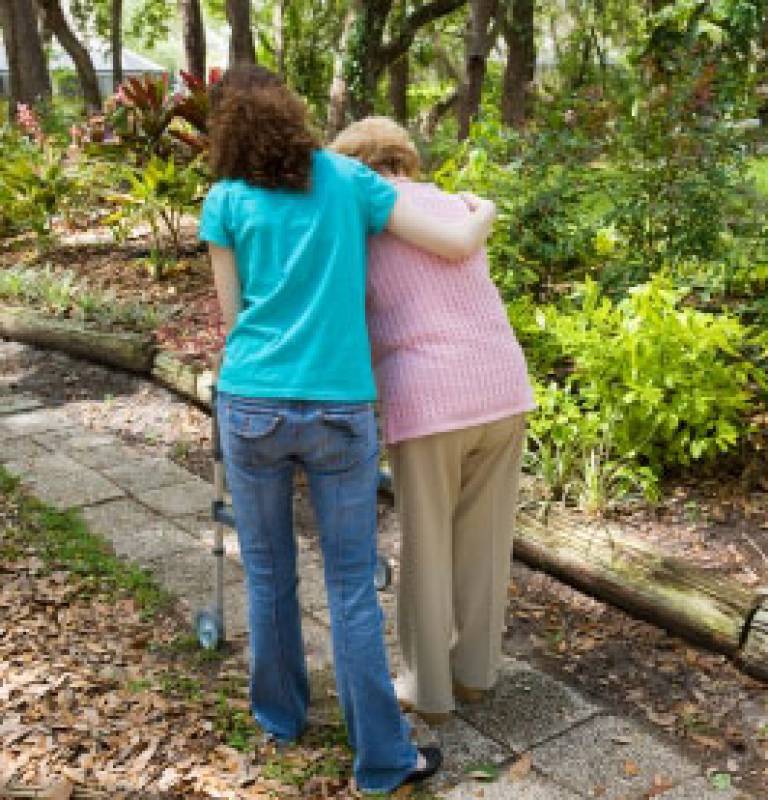Carers need help before dementia diagnosis
19 August 2010
Press release Links:
 bmj.com/" target="_blank">BMJ
bmj.com/" target="_blank">BMJ
One of the most difficult times when caring for a friend or family member with dementia is the period before diagnosis, according to new research led by UCL and published online today in the British Medical Journal.
As the population ages, a large and increasing number of people are caring for a relative or friend with a form of dementia. Those family carers often have to make decisions on behalf of the other person. The study, based on interviews with family carers in London, is the first to ask in detail about the difficulties they have experienced when making decisions for a loved one with dementia, and the types of decisions they have had to make.
Lead author Professor Gill Livingston, UCL Mental Health Sciences, said: "Currently, most help for family carers is targeted through health and social services after a diagnosis. What carers told us in this study is that help needs to be available before then. There's often a significant period of time before diagnosis when the carer knows there's a problem, but getting the person with dementia to the doctor and then the doctor to see this is difficult. This means that they cannot get an acknowledgment there is a problem, or the help they need.
"Carers told us of enormous difficulties during that time period, for example, having to stay off work because their relative would leave the gas on; or one man continuing to work as a GP until he could not find his way to work. In addition, delayed diagnosis can mean it is too late for the person with dementia to be able to make important choices - for example about legal, financial or living arrangements.
"Carers also highlighted the difficulties in making decisions on behalf of other people, especially when that person doesn't want them to. Although the Mental Capacity Act gives carers legal rights to make decisions, they found taking on this new role stressful, as it often jarred with being a wife, husband or child. They had to find ways to persuade their relative to agree to what they needed to do to help them retain their dignity."
The study authors spoke to 43 family carers of people with dementia in focus groups and conducted individual interviews with a further 46 carers, all from the Greater London area. During the interviews, the carers identified five areas where they encountered problems making decisions: accessing services, care homes, legal and financial matters, other (non dementia-related) healthcare issues, and making plans for the person with dementia if the carer was no longer able to look after them.
The husband of someone with dementia commented: "The hardest decision that I've had to make was to convince my wife there was something wrong with her." A widower, who had previously cared for his wife with dementia, said: "We didn't realise what dementia meant, the implications. I think that people who are carers should receive some training…be told what to expect and what to do. Before it happens - not when it happens."
Measures identified by the interviewees as being helpful included introducing change slowly, organising legal changes early on, involving a professional to persuade the patient to accept services, and emphasising to the patient that services could improve, rather than reduce, independence.
Another author, Dr Claudia Cooper, added: "Earlier diagnosis and management of dementia helps patient choice and improves quality of life for both the person with dementia and the person caring for them. A lack of emotional support for family carers of people with early dementia who still have capacity acts as a barrier to difficult discussions around future care options.
"Decision-making differs according to a number of factors including previous experiences, education, social and cultural background. However, what helps everyone in making decisions is early access to good information and support. This study has used the experience of carers to develop tools that may help others."
The researchers have devised
a series of factsheets based on the findings of the study, available initially
on the BMJ website.
Media contact: UCL Press Office
Related news:
The
global burden of mental health disorders
New
study into dementia within the Deaf community
 Close
Close

